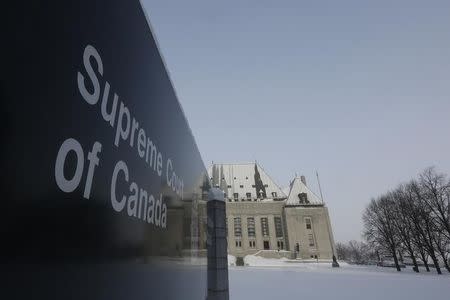Canada's top court rules World Bank does not have to hand over files

By Leah Schnurr and Mica Rosenberg OTTAWA/NEW YORK (Reuters) - Canada's top court ruled on Friday that the World Bank did not need to turn over documents sought in a case against former employees of SNC-Lavalin accused of bribery, finding the international organization had immunity from the request. The case has been closely watched given its implications for how the World Bank investigates corruption and its ability to protect whistleblowers. The Supreme Court of Canada overturned a lower court order from 2014 that said the World Bank should release its investigative files for judicial review that could be relevant to the defense. The World Bank had appealed, claiming immunity. The bank, joined by the Canadian government, contended that if Canadian courts can force the international organization to hand over documents, there is a risk other countries would do so as well to persecute tipsters. In its unanimous decision, the Supreme Court ruled that the trial judge "erred in construing so narrowly an immunity that is integral to the independent functioning of international organizations." The World Bank barred SNC-Lavalin Inc, a subsidiary of SNC-Lavalin Group , from participating in World Bank-funded projects for 10 years after conducting an investigation into corruption allegations concerning the engineering firm. It shared some information with the Royal Canadian Mounted Police, which did its own probe. Three former SNC executives and one other man were charged, one of several scandals to hit the Montreal-based company. The accused were charged with bribing foreign public officials in relation to SNC's bid for a construction supervision contract for the Padma Bridge in Bangladesh, which was funded by the World Bank. The accused argued the internal World Bank documents could be relevant to their defense. "Shielding an organization's entire collection of stored documents, including official records and correspondences, is integral to ensuring their proper, independent functioning," the Canadian top court found. The court ruled that the partial voluntary disclosure of some documents by the World Bank did not amount to a waiver of its immunity. It also found that personnel immunity shielded World Bank investigators from being compelled by a Canadian court. The World Bank welcomed Friday's decision. "Today's announcement is a vote of support to the World Bank's anti-corruption work and its cooperation with member countries to ensure that development projects are implemented with integrity," said Leonard Frank McCarthy, World Bank Integrity Vice President. (This story corrects to clarify SNC-Lavalin Inc was debarred by World Bank) (Reporting by Leah Schnurr; Editing by Frances Kerry and James Dalgleish)

 Yahoo Finance
Yahoo Finance 